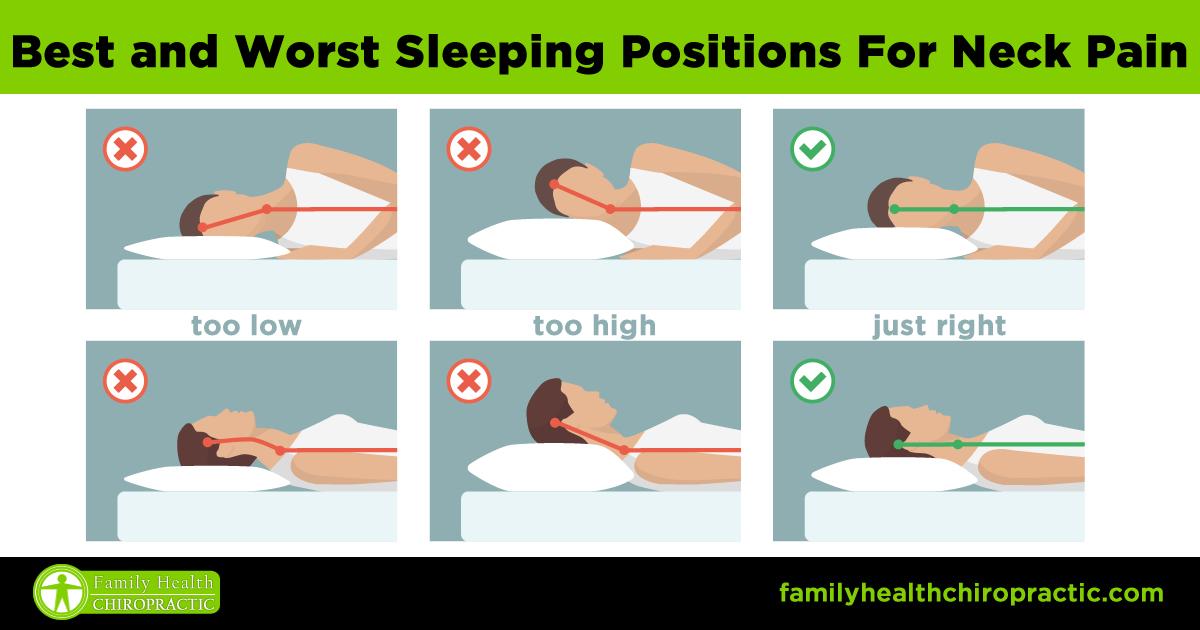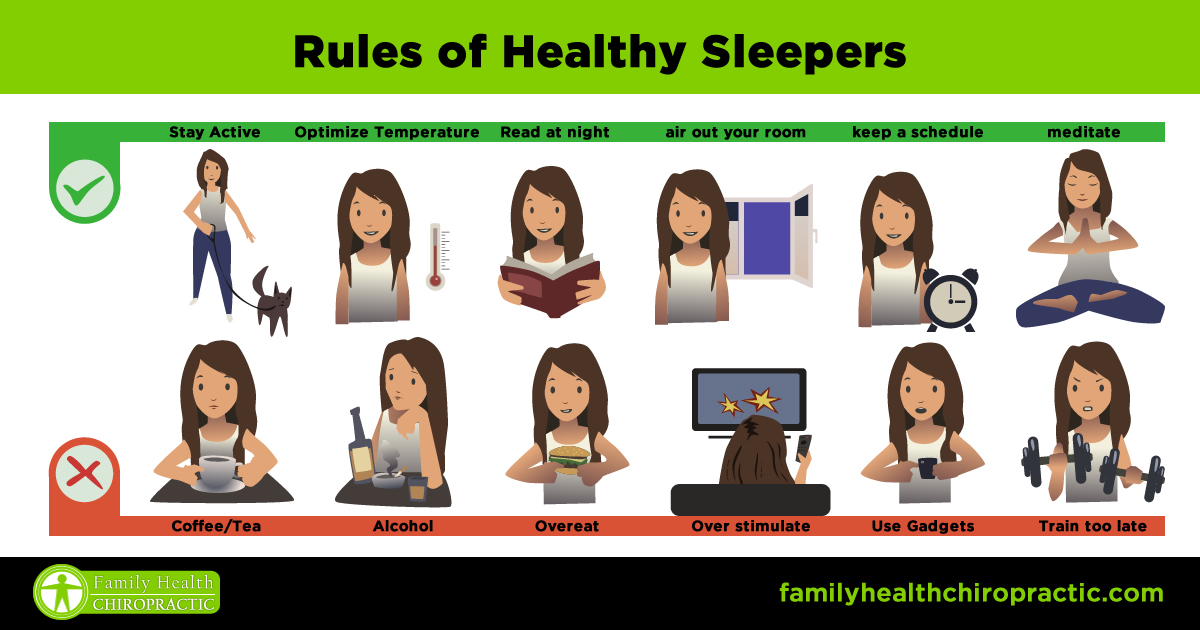Sleeping Position & Neck Pain
Many of our patients experience neck pain right when they wake up. Optimizing your sleep position, pillow setup and mattress should all be considered if this is something you struggle with.
As with so many things related to pain, an ounce of prevention may be worth a pound of cure. Yes, the causes of neck pain are vast and may not be under your control. On the other hand, there are things you can do to try to minimize your risk. A very common cause of neck pain is forward head posture.
And yes… Sleeping positions are a great place to start.
In this article we will discuss some of the best and worst sleeping positions for neck pain.
Worst Sleeping Position for Neck Pain
Without a doubt, sleeping on your stomach is the worst position for both acute and chronic neck pain. When you sleep on your stomach, you have to twist your head and neck to the side, which puts a lot of pressure on the nerves coming out of your neck.
In addition, sleeping on your stomach causes misalignment of the shoulders. Not only will this give you shoulder problems, but often times we find that trigger points in the shoulders are causing neck pain.
That said, if you prefer to sleep on your side, make sure you lay on the side that isn’t painful. Draw your legs up toward your chest and place a pillow between your knees. Finally, make sure that your pillow is not abnormally elevating your head.
Best Sleeping Position for Neck Pain
If you suffer from neck pain, it’s important to make sure your neck is supported while you sleep.
The best way to support your neck is either sleeping on your back or your side. However, it's very important to make sure you have the right pillow for your head and shoulders.
Just like finding the perfect pair of shoes for your body type, finding the right pillow is key to reducing the risk of neck pain. If you're sleeping on your back, you'll want to make sure that the pillow supports your neck, but doesn't lift your head up too high (creating forward head posture).
An orthopedic or roll pillow are good options for people with neck pain. If you prefer to sleep on your side, again… make sure your pillow isn’t too high.
Additional tips for side and back-sleepers:
- Try using a feather pillow, which easily conforms to the shape of the neck. Feather pillows will collapse over time, however, and should be replaced every year or so.
- Another option is a traditionally shaped pillow with “memory foam” that conforms to the contour of your head and neck. We recommend Pillow Wise and carry these in our office!
- Avoid using too high or stiff a pillow, which keeps the neck flexed overnight and can result in morning pain and stiffness.
- If you sleep on your side, keep your spine straight by using a pillow that is higher under your neck than your head.
- When you are riding in a plane, train, or car, or even just reclining to watch TV, a horseshoe-shaped pillow can support your neck and prevent your head from dropping to one side if you doze. If the pillow is too large behind the neck, however, it will force your head forward.
Neck Pain Beyond Sleeping Position
Research suggests that not just sleep position, but sleep itself, can play a role in musculoskeletal pain, including neck and shoulder pain.
In one study, researchers compared musculoskeletal pain in 4,140 healthy men and women with and without sleeping problems. Sleeping problems included difficulty falling asleep, trouble staying asleep, waking early in the mornings, and non-restorative sleep. They found that people who reported moderate to severe problems in at least three of these four categories were significantly more likely to develop chronic musculoskeletal pain after one year than those who reported little or no problem with sleep.
One possible explanation is that sleep disturbances disrupt the muscle relaxation and healing that normally occur during sleep. Additionally, it is well established that pain can disrupt sleep, contributing to a vicious cycle of pain disrupting sleep, and sleep problems contributing to pain.
If, despite switching up your pillow and sleeping position, you still can’t get rid of your neck pain, or if your neck pain is caused by an injury or chronic condition like arthritis then definitely consider getting checked by a qualified healthcare professional.





